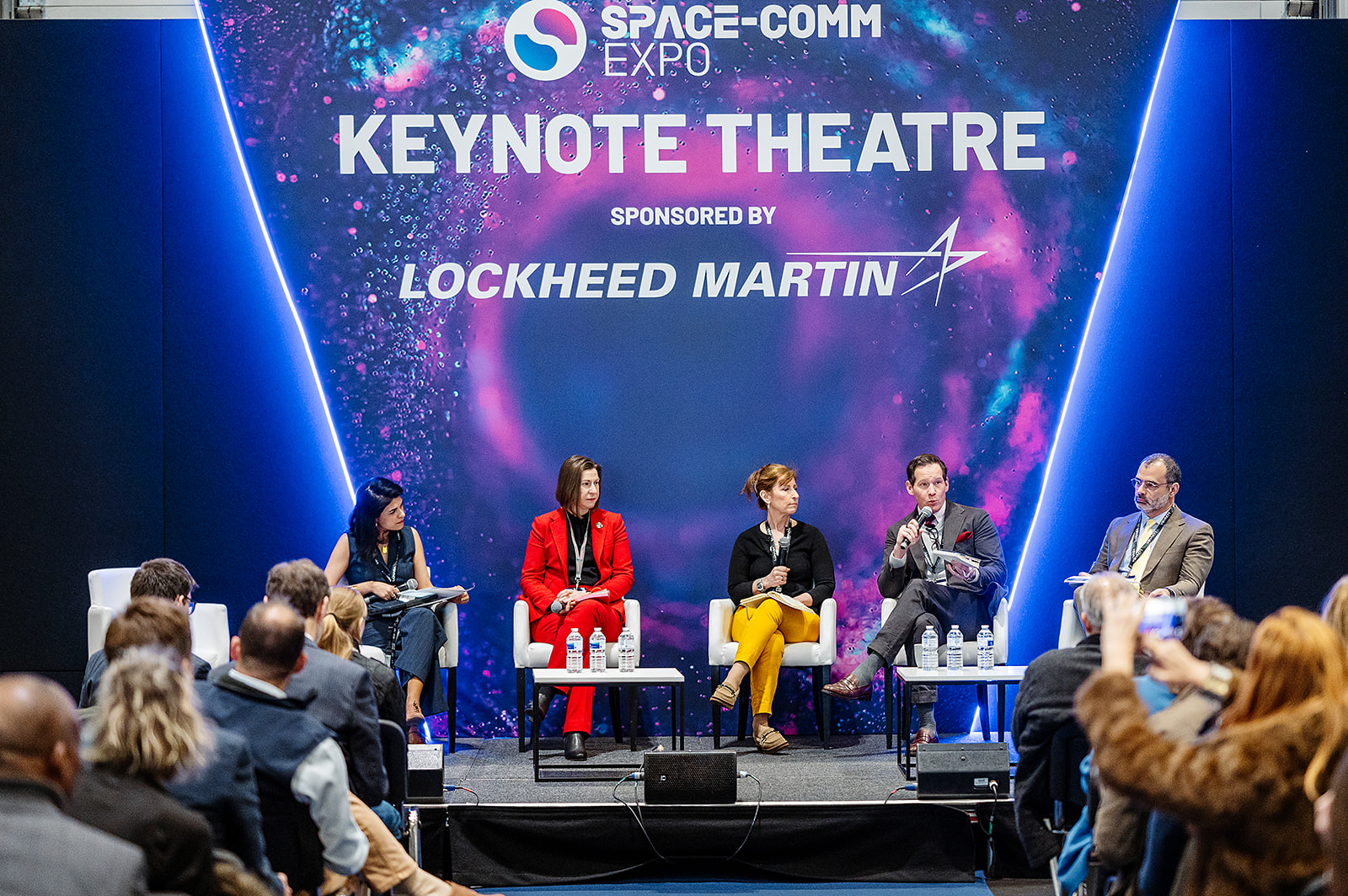Report highlights impact of UK contribution to Gaia mission

Above:
Artist impression of ESA's Gaia satellite observing the Milky Way.
Credit:- Spacecraft: ESA/ATG medialab / Milky Way: ESA/Gaia/DPAC
Artist impression of ESA's Gaia satellite observing the Milky Way. Credit: Spacecraft: ESA/ATG medialab; Milky Way: ESA/Gaia/DPAC
The UK Space Agency commissioned space economics and strategy consultancy know.space to study the impact of the UK’s national funding to date for the UK’s role in contributing to the European Space Agency’s (ESA) Global Astrometric Interferometer for Astrophysics (Gaia) mission.
Launched in 2013 and expected to be in operation until 2025, Gaia is undertaking the ambitious task of providing a 3D chart of positional and velocity measurements of up to 2.5 billion stars, quasars, exoplanets, comets and asteroids. The mission’s aim is to construct by far the largest and most precise 3D map of the Galaxy ever made.
The report found that Gaia publications since 2014 have been cited more than 200,000 times, and UK authored papers are cited significantly more than average. For example:
- Papers with UK involvement constitute 46% of total citations, while accounting for 31% of publications
- UK first authored papers constitute 15% of total citations, while accounting for 10% of total publications
- The average number of citations for a UK-authored publication (first-authored or contributing author) is 35, compared to 23 for a Gaia paper without UK involvement
Among the findings the report also shows that by partnering with the Imaging and Molecular Annotation of Xenografts and Tumors laboratory at the Cancer Research UK Cambridge Institute and others, the UK’s Gaia team has employed star map analytical techniques to study cancers and tumours. This novel approach, aiming to develop the world’s first virtual reality cancer map could redefine diagnosis and promote more personalised cancer treatments.
Dr Caroline Harper, Head of Space Science at the UK Space Agency, said: "Gaia is a groundbreaking science mission, in terms of both the quality and richness of the scientific data and the advances in ‘big data’ processing that it has stimulated and which can be applied to other areas such as medical diagnostics.
"It’s fantastic that the UK is a core member of the international Gaia consortium and has been making such important contributions to the mission. This study has provided a timely and valuable insight into the positive outcomes of UK Space Agency funding for space science missions like Gaia.
The UK has a key role in developing the processing and analysing of data in the mission. This enables the UK space science research community to play a central role in ongoing data processing and scientific discovery.
The Impact Evaluation, which comes as new Gaia data is made available today, analysed the work to date across the four core themes of science, UK competitiveness, collaboration inspiration and innovation to identify the outcomes of national funding to date.
The report highlights the instrumental role played by the UK in developing Gaia’s spectrophotometry instruments, which has allowed the observatory to study around 2.5 billion celestial bodies, revealing deep insights into our Milky Way and the stages of stellar evolution.
It also reveals that many PhDs have been made possible, both through research projects exploiting data from Gaia, of more specifically through Gaia related doctoral training networks, supported by UK and/or EU funding, such as the current MWGaia Doctoral Network.
Will Lecky, Co-founder and Director at know.space, said: "There can be little doubt that Gaia is a scientific success story. Our report highlights how UK funding has enabled the processing and release of high-quality data that is of huge value to the global scientific community, helping to advance the frontiers of human knowledge. The impact is also set to continue for years and decades to come.
"Our analysis also shows how funding has helped to expand the reach and reputation of the UK space sector, develop sought-after data skills, inspire the next generation, and lead to widespread ‘spillover’ benefits as new advanced statistical methods, algorithms and capabilities are applied elsewhere in the space sector and beyond."
Scientists and engineers from around the UK also played key roles in the design and build of Gaia. UK participation in the mission is funded by the UK Space Agency which has invested £23 million to date, with an additional £2.4 million from the UK Science and Technology Facilities Council (STFC).
Dr Colin Vincent, STFC Associate Director Astronomy, said: "The UK Space Agency and STFC have jointly supported data centres in the UK that are essential to the exciting science from this unique international mission to explore the evolution of our own galaxy.
"By developing and applying advanced data extraction and processing techniques UK experts have enabled the maximum science to be extracted from the raw data science to deliver new insights."
Release of the latest Gaia mission data
The mission’s latest ‘focused product release’, provides many new unexpected and exciting insights which includes the revelation of half a million new and faint stars in a massive cluster, 380 possible cosmic lenses, and the pinpointing the positions of more than 150,000 asteroids within the Solar System.
Dr Nicholas Walton, lead of the UK Gaia Project team and ESA Gaia Science Team member, said: "This release will open up new insights across astronomy, from the precise orbits of asteroids in our Solar System, to quasar discovery in the distant cosmos. A truly wonderful release demonstrating the breadth of science enabled by Gaia. This release represents but a small taster of the riches to be revealed with the publication of the next full release, Gaia Data Release 4."
Click here to view the Gaia Interim Impact Evaluation Report, hosted by know.space.
Click here to view the Gaia data release.













